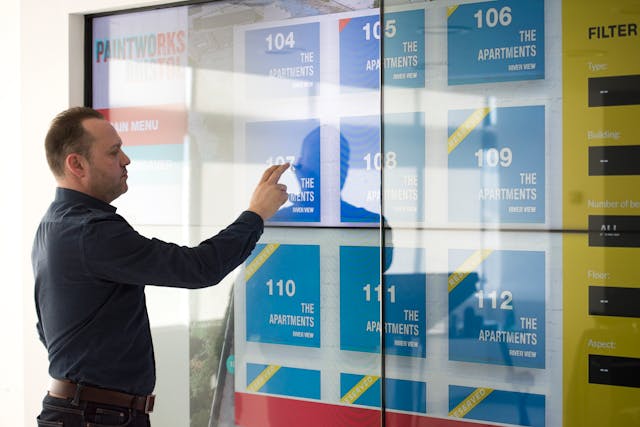Income Requirements
One of the most significant factors in obtaining a home loan in Australia is income, and for new immigrants, lenders assess income based on a few unique guidelines:
-
Deposit Requirements: Most Australian lenders require at least a 20% deposit of the property’s value to avoid Lenders Mortgage Insurance (LMI). However, some lenders may allow deposits as low as 5%, though LMI will likely apply in those cases.
-
Foreign Income Considerations: For new immigrants with foreign income, lenders typically consider only 80% of gross foreign income, unlike Australian residents who can use 100% of their income in assessments. Additionally, if a portion of the income comes from within Australia, this can positively impact lending requirements. For instance, if an immigrant’s income is structured with 70% foreign and 30% Australian earnings, they may qualify for a more favorable Loan-to-Value Ratio (LVR).
-
Australian Currency Advantage: Since Australian income is often treated more favorably in lending assessments, immigrants with some portion of income earned in Australia may have greater flexibility in structuring their loan. This can be particularly helpful in securing higher LVRs and potentially better loan terms.
Credit Requirements
Credit history is another essential aspect that lenders assess when evaluating loan applications. However, since Australian lenders can’t access international credit records, immigrants may need to meet additional requirements.
-
Building a Credit Profile in Australia: For immigrants without an Australian credit file, lenders may impose stricter conditions, including higher deposits or more documentation. New immigrants should focus on building their credit history in Australia, as a good credit score can significantly improve their chances of loan approval, offering lower interest rates and better loan features.
-
Assessing Creditworthiness: Australian lenders will evaluate an applicant’s creditworthiness based on factors such as employment, assets, liabilities, and any existing credit score in Australia. For those new to the country, demonstrating consistent employment, having substantial assets, and reducing liabilities can enhance their chances of securing a favorable loan.
-
Interest Rates and Loan Terms: A solid credit score is critical, as lower scores often result in higher interest rates and fewer attractive loan options. Immigrants should take steps to build a healthy credit score to improve their lending terms over time.
Government-Backed Loans and Schemes
The Australian government has introduced several schemes to support homeownership, particularly for first-time buyers. While these programs are not exclusively designed for immigrants, they can provide valuable support if eligibility requirements are met.
-
First Home Loan Deposit Scheme (FHLDS): The Federal Government’s FHLDS allows eligible first-home buyers, including new immigrants, to purchase a home with as little as a 5% deposit. It’s important to note that the FHLDS isn’t tailored specifically for foreign income earners, but those who qualify can benefit from lower upfront costs and no LMI.
-
National Housing Finance and Investment Corporation (NHFIC) Programs: The NHFIC offers guarantees for several government-backed loans, including the First Home Super Saver Scheme (FHSSS). While these guarantees aren’t specifically designed for foreign income, they provide opportunities for eligible immigrants to save and invest toward a home purchase with certain tax benefits.
Additional Requirements for New Immigrants
Lenders may have additional requirements for immigrants to ensure they meet Australian financial and credit standards. These requirements may vary depending on individual financial situations and the lender’s specific policies:
-
Documentation: New immigrants may need to provide comprehensive documentation, such as proof of income, employment contracts, tax returns, and savings history, to demonstrate financial stability and creditworthiness.
-
Guarantor or Co-Signer: In some cases, lenders may require new immigrants to have a guarantor or co-signer on the loan, especially if they have limited credit history in Australia. A guarantor can increase the security of the loan, making it easier for immigrants to gain loan approval.
Working with a Mortgage Broker
Since lending requirements and policies can vary widely between lenders, new immigrants should consider working with a mortgage broker, particularly one experienced in handling foreign income and government-backed loans. A skilled mortgage broker can:
-
Navigate Lending Options: Brokers have insights into which lenders are more likely to work with new immigrants and can compare options to find the best fit based on individual circumstances.
-
Advise on Documentation: Brokers can also guide applicants through the paperwork, ensuring that all necessary documents are submitted correctly, which can significantly speed up the application process.
-
Help Maximize Eligibility: By understanding unique lending requirements, brokers can help new immigrants take steps to strengthen their application and maximize eligibility for government schemes or favourable loan terms.
Final Thoughts: Planning for Homeownership as a New Immigrant
While buying a home as a new immigrant in Australia comes with additional requirements, understanding the process and available resources can make it achievable. Whether you’re looking to establish your family’s home or invest in property, being aware of income and credit requirements, government-backed options, and additional criteria will help you prepare effectively.
By working with experienced professionals and understanding the various programs and options available, new immigrants can overcome the initial challenges and build a solid foundation for their future in Australia. With careful planning and the right support, the path to homeownership in Australia can become a rewarding reality.
Need more information contact us today for an obligation free chat




